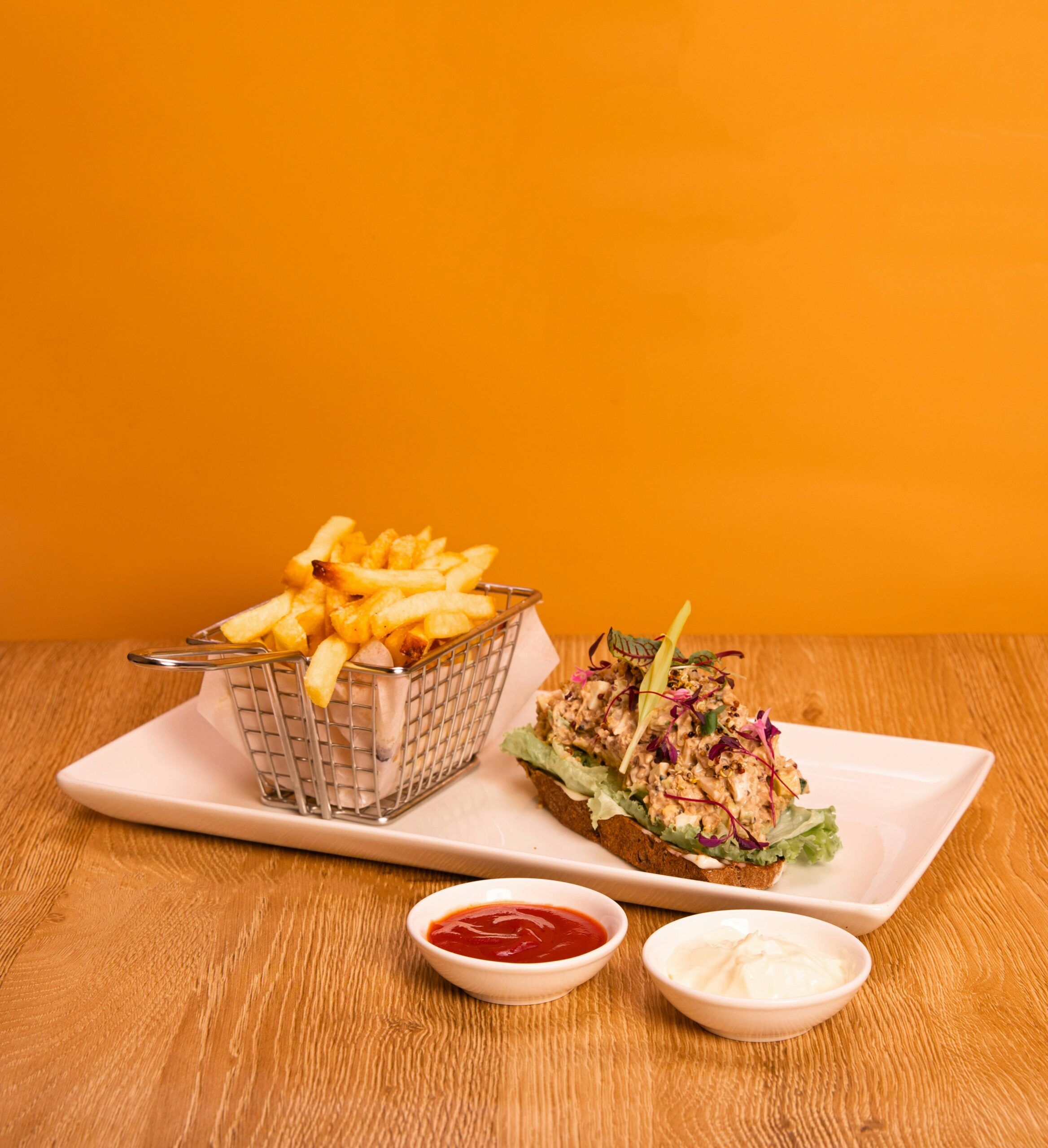- The Latest Updates in Restaurant Management
- Are You a Competent Restaurant Manager?
- Best Practices for Managing Your Restaurant
Elevating the dining experience requires more than just delicious food and a pleasant ambiance.
Behind the scenes, restaurant management plays a pivotal role in ensuring smooth operations, exceptional service, and, ultimately, a thriving establishment.
From the front-of-house to the back-of-house, effective restaurant management practices are essential for success in the highly competitive culinary industry.
In this article, we’ll explore a comprehensive set of best practices that can help restaurant owners and managers navigate the challenges and maximize the potential of their establishments.
So if you’re a franchise owner or a startup restaurateur, here are some restaurant management best practices to help you get started.
The Latest Updates in Restaurant Management
Technology is transforming how restaurants operate and manage their staff, customers, and supply chain.
In fact, a recent study showed that more than half of restaurateurs believe that technology has been imperative to their survival in the post-Covid world.
So make sure to stay up-to-date with the latest restaurant management technology and trends.
By leveraging cloud-based technology, these platforms enable restaurant owners to automate tasks such as staffing, payroll, inventory management, customer relations, and more.
The best restaurant software solutions provide real-time insights into the data mattering most to your business—from live sales tracking to employee performance analytics. This data helps you make smarter decisions that can help improve customer experience and boost operational efficiency.
Are You a Competent Restaurant Manager?
Implementing new restaurant technology is only one aspect of being a great restaurant manager. Having the right qualities and skills is just as important.
An effective restaurant manager should possess the following qualities:
Leadership Skills
A competent restaurant manager is a strong leader who inspires and motivates their team. They lead by example, setting high standards of professionalism, work ethic, and customer service. They have the ability to delegate tasks, provide clear directions, and empower their staff to take ownership of their roles.
Excellent Communication
Effective communication is crucial in managing a restaurant. A competent manager communicates clearly and concisely with both the staff and customers. They actively listen to their team’s concerns, provide constructive feedback, and address any issues promptly. They also communicate effectively with customers, ensuring their needs are understood and met.
Strong Organizational Abilities
Running a restaurant requires exceptional organizational skills. A competent manager can juggle multiple tasks, prioritize responsibilities, and manage time effectively. They are adept at planning and coordinating daily operations, staffing, inventory management, and customer service, ensuring everything runs smoothly.
Customer Focus
A competent restaurant manager understands the importance of customer satisfaction. They prioritize creating a welcoming and enjoyable dining experience for guests. They are attentive to customer needs, handle complaints or concerns with empathy and professionalism, and strive to exceed expectations.
Financial Acumen
Managing the financial aspects of a restaurant is crucial for success. A competent manager has a strong understanding of budgeting, cost control, and profitability. They can analyze financial reports, identify areas for improvement, and make informed decisions to maximize revenue and minimize expenses.
Problem-Solving Skills
In a fast-paced restaurant environment, unexpected challenges and problems can arise. A competent manager is a skilled problem solver who remains calm under pressure. They can think quickly on their feet, make sound decisions, and resolve issues efficiently, minimizing disruptions to operations.
Adaptability
The restaurant industry is dynamic and ever-changing. A competent manager embraces change and is adaptable to evolving trends, customer preferences, and industry regulations. They are open to new ideas, continuously seek improvement, and are willing to adjust strategies to stay competitive.
Team Building and Staff Development
A competent manager understands the importance of a strong team. They invest time and effort in recruiting, training, and developing their staff. They foster a positive work environment, encourage collaboration, and provide opportunities for growth and advancement. They also recognize and reward employee achievements and promote a culture of teamwork and excellence.
Attention to Detail
The ability to pay attention to detail is crucial in maintaining quality standards and consistency. A competent manager has a keen eye for detail, ensuring that food presentation, cleanliness, and overall ambiance meet the highest standards. They are thorough in their inspections and take proactive measures to address any shortcomings.
Passion and Dedication
Above all, a competent restaurant manager is passionate about the industry and dedicated to their craft. They have a genuine love for food, hospitality, and creating memorable experiences. Their enthusiasm is contagious, inspiring their team and fostering a positive work environment.
By embodying these qualities, a competent restaurant manager can effectively lead their team, manage operations, and create an environment that fosters success, customer satisfaction, and long-term growth for the restaurant.
Best Practices for Managing Your Restaurant
As a restaurant owner, you require a combination of strategic planning, efficient operations, effective communication, and a focus on customer satisfaction.
Here are some best restaurant management tips that can help you successfully manage your restaurant:
Develop a Clear Vision and Business Plan
Define your restaurant’s mission, vision, and target market. Create a comprehensive restaurant business plan that outlines your goals, strategies, and financial projections. This plan will serve as a roadmap for your operations and guide decision-making processes.
For example, let’s say your restaurant’s vision is to offer a unique dining experience with the freshest, organic ingredients. Your business plan should include strategies for sourcing local and sustainable produce, cost-effective pricing, and special events to draw in customers.
Your Inbox, Your Rules!
Tailor your newsletter with the topics you're most interested in.
Optimize Menu Planning and Design
Though you might not be able to design your own menu from scratch as a franchise owner or startup restaurateur, you can use menu engineering and psychology to maximize sales.
But what does this mean?
To start, the menu design should be consistently updated to reflect seasonal changes and customer preferences. Additionally, pricing should be strategically set to ensure profitability. You also want to focus on highlighting your signature dishes and visually appealing menu items.
Train and Retain Your Team
Your whole team is the backbone of your restaurant operations and success. Invest in training, employee development, and feedback systems to ensure that your team is highly engaged and motivated.
Creating an enjoyable work environment is a must in the restaurant industry. Regularly schedule team-building activities or events outside of work so employees can bond with each other and have fun.
If there’s a new software that you’re implementing, make sure your team knows how to use it. Offer the training they need to get comfortable with the technology and set them up for success.
Efficient Inventory Management
Implement a robust inventory management system to track ingredients, supplies, and perishable items. Regularly monitor stock levels, streamline purchasing processes, and minimize food waste.
Effective inventory management helps control costs, maintain quality, and ensure smooth operations.
Streamline Operations and Workflow
Competent restaurant managers develop efficient processes and workflows to optimize productivity. Design the layout of your restaurant to facilitate the smooth movement of staff and guests. Train your staff on best practices, standard operating procedures, and proper use of equipment to enhance efficiency.
If a new hire isn’t taught the essential equipment early on, it can create an obstacle for them down the road.
Focus on Customer Service
Deliver exceptional customer service to build customer loyalty and generate positive word-of-mouth. Train your staff to provide attentive, personalized service, handle complaints effectively, and create memorable dining experiences.
Regularly seek feedback from customers to identify areas for improvement.
Prioritize Food Safety and Hygiene
Adhere to strict food safety and hygiene standards to protect your customers and maintain a good reputation. Train your staff on proper food handling, storage, and sanitation practices. Conduct regular inspections and follow local health regulations to ensure compliance.
You can find such regulations on the FDA’s website.
Build a Strong Team
Recruit skilled and passionate individuals who align with your restaurant’s values and culture. Provide comprehensive training and ongoing professional development opportunities to enhance skills and job satisfaction. Foster a positive work environment that promotes teamwork, communication, and mutual respect.
Effective Marketing and Promotion
Develop a targeted marketing strategy to reach your desired audience. Utilize both traditional and digital marketing channels, including social media, online platforms, and local advertising. Engage with your community through partnerships, events, and promotions to increase brand visibility.
Embrace Technology
Leverage technology solutions to streamline operations and enhance the guest experience. Implement a reliable point-of-sale (POS) system for order management, payment processing, and data analysis.
Utilize reservation and online ordering systems to improve efficiency and convenience for customers.
Some benefits of using technology for restaurant management include:
Automation of administrative tasks and operational processes
Accurate order tracking and data collection
Improved customer satisfaction
Increased operational efficiency
Lower labor costs
Monitor Financial Performance
Regularly track and analyze key financial metrics, such as revenue, expenses, and profitability, to keep food costs under control. Implement robust accounting and financial management practices to ensure accurate record-keeping and cost control.
Remember to set budgets and regularly review financial performance to make informed decisions and identify areas for improvement.
Stay Updated with Industry Trends
Keep abreast of industry trends, emerging technologies, and customer preferences. Attend industry conferences, join professional networks, and engage with other restaurant owners to stay informed and seek inspiration. Adapt and innovate your offerings to meet changing customer demands and market trends.
Improve Your Management Skills and Knowledge
Restaurant management is a challenging yet rewarding career. To achieve business success, you must possess excellent leadership and communication skills, financial acumen, problem-solving abilities, adaptability, and a passion for the industry.
By following best practices and embracing technology solutions for restaurant management, you can create an environment that fosters success and customer satisfaction. With a combination of the right skills, knowledge, and technology, you can effectively manage your restaurant and achieve long-term profitability.



